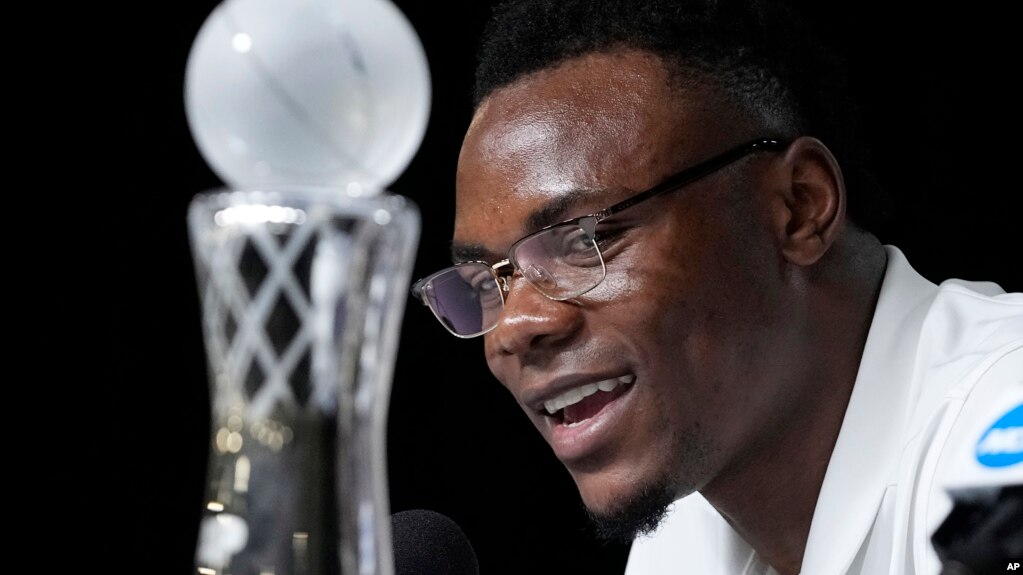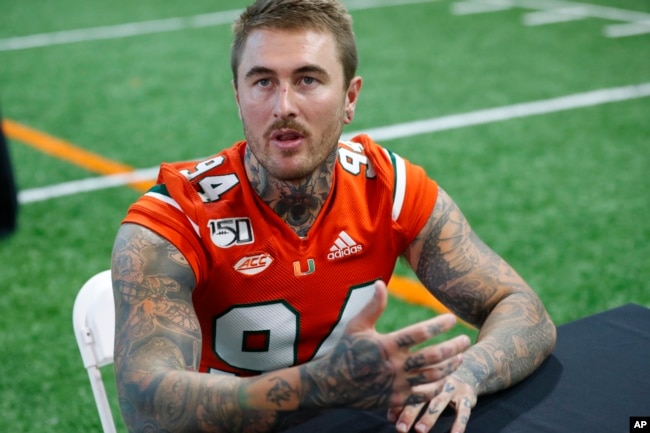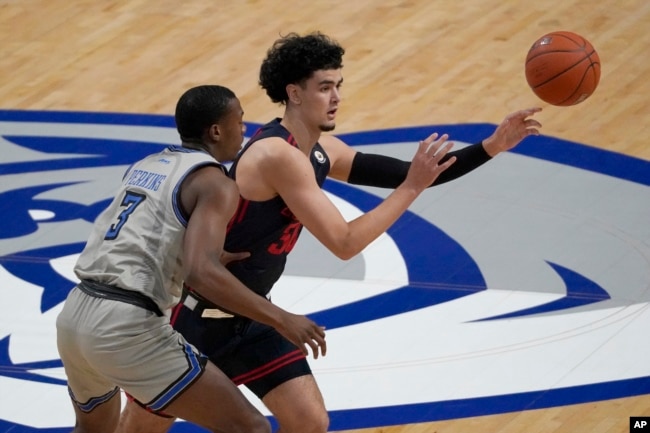Foreign Athletes at US Colleges Find Ways to Make Money

Rule changes that took effect last year mean that athletes competing for American colleges and universities can make money through deals with businesses and products. Before the rule changes, an athlete could not keep an athletic scholarship or compete collegiately if they took money.
But international athletes are unsure about their ability to cash in. Many foreign athletes competing in the NCAA, or National Collegiate Athletic Association, cannot earn money unless they go to their home country to do it.
That includes athletes like Lou Hedley. He is from Australia. Hedley is a kicker on the football team at the University of Miami in Florida.
Many of the players on Hedley’s team are making money by doing things like promoting products on their Instagram accounts. That money comes their way thanks to a 2021 decision by the U.S. Supreme Court. It permitted college students to use their name, image and likeness – also called NIL – to earn money.

FILE - Lou Hedley, seen here on Aug. 13, 2019, in Coral Gables, Florida, did work for a Miami-based company when he was home in Australia so he could earn money this summer. (AP Photo/Wilfredo Lee)
Hedley is attending college in the U.S. on a special student visa known as F-1. People on student visas are not permitted to make money while attending school in the U.S.
Observers, however, say there is still a way for Hedley to earn money. They say foreign athletes can travel to their home country and do things like take photos and record videos that can be used to sell a product.
So Hedley took the long flight home to Australia. He did not say exactly how much money he expects to make, but noted the amount is similar to what his teammates earn. The teammates have said they make about $50,000.
“It’s a pain,” he said, speaking of the long trip home, “but it’s all worth it.”
Hedley recorded videos and took photos for a company called LifeWallet, a healthcare information company run by a Miami sports fan.
Hedley said, “I deserve to get a little bit of money,” because of his efforts on the football team over the last two years.
He said he did not break any of the rules. He gets paid in Australian money and did not sign any documents until he made it home.
Foreign athletes in other college sports are following Hedley’s example. They include Mustapha Amzil, who is from Finland. He plays basketball at the University of Dayton in Ohio. He recently said he will be looking for work opportunities when he is in Finland this year to play games with his national team.
Some foreign college athletes, however, are not as sure about cashing in on their fame. They are worried that taking money for talking about products might cause their visa to be canceled. That is because the rules about NIL deals are not clear for foreign students.

FILE - The University of Dayton's Mustapha Amzil (R), seen here in a Jan. 26, 2021 file photo, is looking for NIL opportunities when he returns home to Finland this summer. (AP Photo/Jeff Roberson, File)
Schools including Drexel University in Pennsylvania and West Virginia University have asked their foreign students to stay away from NIL deals for now.
“There is a ton of ambiguity,” said Casey Floyd. He is co-founder of NOCAP Sports, a company that helps students find NIL deals. He said the rules should be clearer.
But other schools, like the University of Nebraska, are not waiting. Australians Jaz Shelley and Isabell Bourne both play on Nebraska’s women’s basketball team. As soon as Shelley and Bourne arrived in Australia recently, the university tweeted: “International NIL made possible!”
Administrators at the University of Florida told their athletes to be sure they could prove they were in their home countries if they signed any documents that resulted in money. They were told, for example, to make sure their passports got stamped.
Sarah Loicano is a spokesperson for the U.S. Immigration and Customs Enforcement. She said the U.S. Student and Exchange Visitor Program, which permits the international students to come on visas, “continues to assess,” the NIL issue.
One athlete who would like to see the questions answered quickly is Oscar Tshiebwe of the Democratic Republic of Congo. He is a basketball player at the University of Kentucky. Tshiebwe won the sport’s best player award last season.
Instead of choosing to leave school this summer to become a professional basketball player, he said he would go back to school this autumn. If he is permitted to make money from an NIL deal, he could bring in over $1 million.
Tshiebwe recently met with Mitch McConnell, one of the most powerful U.S. senators. McConnell, a Republican, represents Kentucky.
Tshiebwe discussed the problem international students face with the visa rules. The F-1 visa traditionally keeps foreign students from doing anything but schoolwork. If that changes, however, it may make coming to the U.S. more appealing for many young international athletes.
Words in This Story
athlete- n. a person who is trained in or is good at sports
scholarship- n. money given for the purpose of attending school
cash in – phrase. to obtain money in return for something you own or a skill you have
promote– v. to talk positively about something new that needs support
likeness– n. a person’s face or photo or a creation that is clearly representative of them
deserve– v. used to say someone should be given something, either positive or negative
opportunity- n. a chance to do something
ambiguity- n. something that is not clear
stamp- v. the act of hitting a piece of paper with ink or pressure in order to produce a mark
assess- v. to look over a situation or make a judgment
https://learningenglish.voanews.com/a/foreign-athletes-at-us-colleges-find-way-to-make-money-/6607205.html


